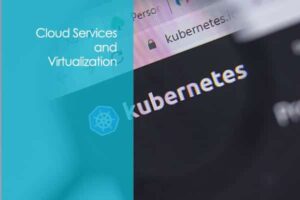Course Overview

Course objectives
A Kubernetes Certification can take your career to a whole new level. Learning Kubernetes is essential for any DevOps professional. DevOps engineers are always in demand. Currently, the average Silicon Valley salary for a DevOps engineer is 20% higher than what a software engineer makes. DevOps engineers make an average of $140,000 to $200,000 annually. Kubernetes is an open-source system for automating deployment, scaling, and management of containerized applications. It was originally designed by Google and is now maintained by the Cloud Native Computing Foundation.
Modules
Module 1: Course Overview
- 1.1 Course Overview
- 1.2 Course PreReqs
Module 2: Kubernetes and Container Fundamentals
- 2.1 Core Concepts
- 2.2 What is the CKA Exam
- 2.3 Why Get Certified
- 2.4 CKA Exam Domains
- 2.5 What is Kubernetes
- 2.6 What is a Container
- 2.7 What is Docker
- 2.8 Kubernetes Terminology
- 2.9 Kubernetes Components
- 2.10 Kubernetes Documentation
- 2.11 Whiteboard – Kubernetes Overview
Module 3: Kubernetes Installation
- 3.1 Kubernetes Installation
- 3.2 Installation Options
- 3.3 MiniKube
- 3.4 Demo – Install Minikube
- 3.5 Demo – Clusters
- 3.6 Kubectl Basics
- 3.7 Demo – Install Kubectl
Module 4: Working with Kubernetes Clusters and Nodes
- 4.1 Working with Kubernetes Clusters and Nodes
- 4.2 Understanding the Architecture
- 4.3 Understanding the nodes
- 4.4 Core Objects
- 4.5 API
- 4.6 Create a Cluster
- 4.7 Demo – Create a Cluster
- 4.8 Demo – YAML
- 4.9 Demo – Nodes
- 4.10 Demo – Kubectl Client Config
Module 5: API Access and Commands
- 5.1 API Access and Commands
- 5.2 About the API
- 5.3 Accessing the APIs
- 5.4 Demo – Exploring APIS
- 5.5 Kubectl
- 5.6 Using YAML for API Objects
- 5.7 Using Curl
- 5.8 Labels and Annotations
Module 6: Running Pods and Deployments
- 6.1 Running Pods and Deployments
- 6.2 Pods and Deployments
- 6.3 What is a Namespace
- 6.4 Scalability Options
- 6.5 Rolling Updates
- 6.6 Apply Changes to a Pod
- 6.7 Stateful Sets
- 6.8 Demo – Manage Deployments
Module 7: Configuring Storage
- 7.1 Configuring Storage
- 7.2 Storage options with Kubernetes
- 7.3 Configure Pod Volumes
- 7.4 Configure Persistent Volumes
- 7.5 Storage Classes
- 7.6 Whiteboard – Persistent Volumes
- 7.7 Demo – Configure Storage
Module 8: Kubernetes Networking
- 8.1 Kubernetes Networking
- 8.2 Understanding Networking
- 8.3 Services
- 8.4 Network Plugins
- 8.5 DNS
- 8.6 Network Policies
- 8.7 Namespaces
- 8.8 Demo – Networking
- 8.9 Manage High Availability
Module 9: Managing Security
- 9.1 Managing Security
- 9.2 Kubernetes Security
- 9.3 Container and Pod Security
- 9.4 Certificates
- 9.5 API Security
- 9.6 Configmaps and Secrets
- 9.7 Secure Images
- 9.8 Security Context
- 9.9 RBAC
Module 11: Kubernetes Monitoring and Troubleshooting
- 11.1 Kubernetes Monitoring and Troubleshooting
- 11.2 Monitoring Resources
- 11.3 Monitoring Pods
- 11.4 Demo – Monitoring Pods
- 11.5 Logging
- 11.6 Demo – Logging
- 11.7 Troubleshooting
- 11.8 Affinity and Taints
Module 13: Course Closeout
- 13.1 Course Closeout
- 13.2 Course Review
- 13.3 Kubernetes Certifications
- 13.4 Additional Resources
- 13.5 Exam Readiness
- 13.6 Course Closeout
Module 10: Managing Kubernetes In the Enterprise
- 10.1 Managing Kubernetes In the Enterprise
- 10.2 Cluster Management and Maintenance
- 10.3 Demo – Scale Deployment
- 10.4 Demo – Restart Cluster
- 10.5 Demo – Add or Remove Nodes
- 10.6 Demo – Create a Pod in the Background
- 10.7 Kubelet Restarts and Drains
- 10.8 UI Dashboard
- 10.9 Demo – Describe Resources
- 10.10 Kube-scheduler
- 10.11 Demo – Set-Up Alias
Module 12: CKA Practice Exams
- 12.1 CKA Practice Exams
- 12.2 Exam Preparation Must Know
- 12.3 Question 1 – Create a Cluster, Deploy Pods and a Deployment
- 12.4 Question 2 – Create a Pod and Verify
- 12.5 Question 3 – Create a Pod with a Secret
- 12.6 Question 4 – Get Logs on a Pod and Send to File
- 12.7 Question 5 – Liveness Probe
- 12.8 Question 6 – Use Labels
- 12.9 Additional Questions
Modes of Learning
- Flashcards: Remember the “read and guess” games we used to play back then? Here’s to enhance what you learned. How does it work? A statement will be written on a flashcard, and you’ll need to guess the answer. Then flip it over to see if you answered it correctly. The cards continue, each with a random statement from the course that you took previously.
- Scatter: “Make Everything Disappear.” Turn the screen white and vanish it all but this time testing your knowledge and your time being monitored. Find the best match and click your way toward success. This brain teaser might give you a hard time! But education combined with games adds an element of fun to it.
- Learn: Here’s another. Read and choose the right answer. A game designed on a Multiple-Choice pattern. This kind of exercise boosts your confidence. When one option seems to be correct, you choose the other only for it to be the right option. The right option will welcome another statement, but don’t sweat! You are still learning.
- Speller: This fun-packed game is unique in its own way. Hear the term carefully and type it out on your screen. You think you are a pro at learning spellings of tricky terms. Test yourself out with this game. Could you hear it properly? If you could, were you able to write it?
We have found our students doing absolutely great by showcasing their certificates. Grab that certificate of yours before someone else does and get that recognition you deserve.
You best learn when you see it. Our easy-to-understand video content is in place for you. Watch the studying content and grasp all the concepts easily. With so many lectures and 3000+ hours of video content, find what suits your needs. These educational videos are designed to sharpen your experience with your training content. Our easy-to-understand video content is in place for you. Watch the studying content and grasp all the concepts easily.
In contrast to other e-learning services, our labs will let you exercise what you analyze in a real environment with a lot to choose from. This layout mirrors the traditional study room format which ensures you will recognize exactly the way to set up, manage and troubleshoot any environment.
Being a successful IT professional involves more than knowing key terms and concepts. You need to be able to “apply” your knowledge to real-world situations. At EZDA we quote, “Learn it to pertain to it.” So, why spend money buying the equipment when we got you all covered?

